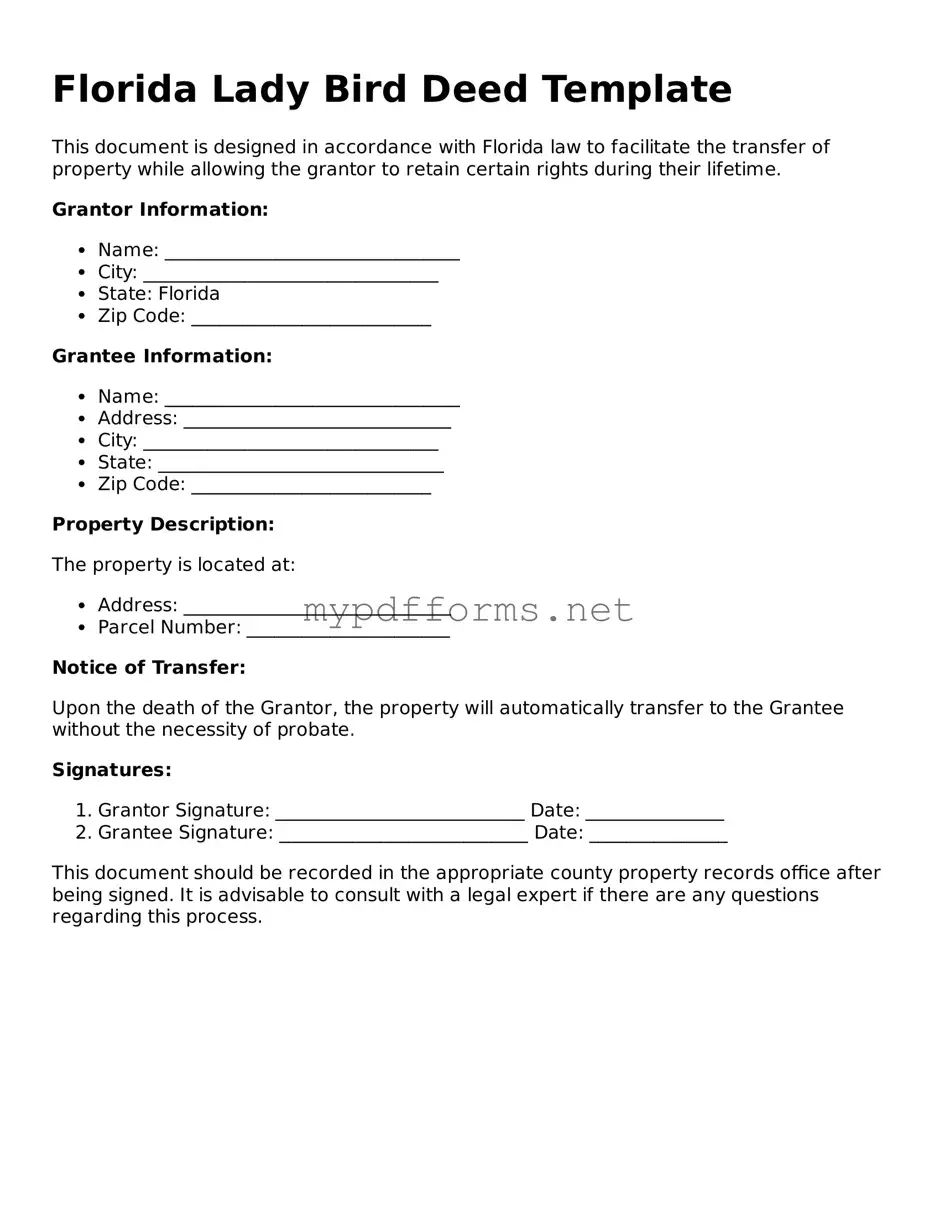The Florida Lady Bird Deed is similar to a traditional life estate deed. Both documents allow a property owner to retain certain rights during their lifetime. With a life estate deed, the owner can live in the property and use it as they wish, but they cannot sell or mortgage it without the consent of the remainderman. In contrast, a Lady Bird Deed allows the owner to sell, mortgage, or transfer the property without needing permission, providing greater flexibility and control over the property during their lifetime.
Another document that shares similarities with the Lady Bird Deed is a revocable living trust. Both instruments are used to manage property and facilitate the transfer of assets upon death. A revocable living trust allows the grantor to maintain control over the assets and can be altered or revoked at any time. Like the Lady Bird Deed, it helps avoid probate, but it requires more administrative effort to set up and maintain.
A transfer on death (TOD) deed is also comparable to the Lady Bird Deed. Both allow property owners to name beneficiaries who will receive the property upon their death. The key difference lies in the fact that a TOD deed does not provide the same level of control during the owner's lifetime. Once the owner passes away, the property automatically transfers to the named beneficiary, whereas a Lady Bird Deed allows the owner to retain full control until death.
The warranty deed is another document that can be likened to the Lady Bird Deed. A warranty deed transfers ownership of property and guarantees that the seller has the right to sell it. While a warranty deed conveys full ownership immediately, a Lady Bird Deed allows for a transfer of ownership upon death while letting the owner retain rights during their lifetime. This distinction is crucial for those who want to maintain control over their property.
For those looking to document their transaction effectively, the Maryland Mobile Home Bill of Sale is an essential form to consider. You can learn more about it by visiting this helpful guide on the Mobile Home Bill of Sale.
Similar to the Lady Bird Deed, a quitclaim deed transfers interest in a property without making any warranties about the title. Both documents can be used to transfer property to heirs or beneficiaries. However, a quitclaim deed does not provide the same level of protection as a Lady Bird Deed. It simply relinquishes any claim the grantor has, which may leave the grantee vulnerable to potential title issues.
The enhanced life estate deed is closely related to the Lady Bird Deed. Both documents allow the property owner to retain rights during their lifetime while ensuring that the property passes to designated beneficiaries upon death. The enhanced life estate deed, however, may not provide the same level of flexibility as the Lady Bird Deed, particularly regarding the ability to sell or mortgage the property without restrictions.
A special warranty deed also bears similarities to the Lady Bird Deed. Both documents involve the transfer of property ownership, but a special warranty deed limits the seller's liability to only the time they owned the property. In contrast, a Lady Bird Deed allows the owner to retain control and rights during their lifetime while ensuring that the property passes to the intended beneficiaries after death.
Lastly, a general power of attorney can be compared to the Lady Bird Deed in terms of property management. A general power of attorney grants an individual the authority to make decisions on behalf of another person regarding their property. While a Lady Bird Deed focuses on the transfer of property upon death, a power of attorney allows for the management of property during the owner's lifetime, making it essential for those who may need assistance in managing their affairs.

